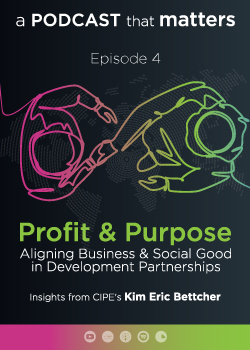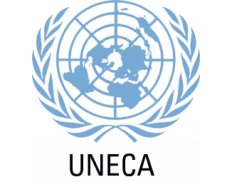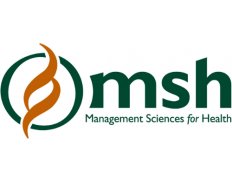Details
Description
The Deutsche Gesellschaft für Internationale Zusammenarbeit (GIZ) GmbH is a state-owned organisation. We work worldwide in the field of international cooperation for sustainable development. GIZ International Services (InS) is an integral division of GIZ.
We offer the experience, the regional and technical know-how of GIZ in the global market and provide international clients with expertise in terms of economic and result-oriented services.
GIZ International Services is currently implementing a project in Ethiopia : EU Support to Criminal Justice Reform in Ethiopia
Governance, justice, rule of law and Human Rights are at the core of the EU’s development agenda. The rule of law (enshrined in Article 2 of the Treaty on the European Union) is a prerequisite for protecting fundamental rights and democracy but requires independent, quality and efficient national justice systems.
Consequently, and in support of the reform agenda, the EU supports the Ethiopian Criminal Justice and Governance sectors in a number of ways and the programme to which this assignment applies is known as the “Support to Criminal Justice Reform in Ethiopia programme.”
The overall objective of the programme is to increase rule of law, respect for human rights and access to justice for all.
The programme commenced with a formal signing of a 3-year grant agreement on 19 March 2021 with the EHRC. The Technical Support element which is designed to support the entire programme commenced a 4-year cycle on 15 October 2021.
It has been identified that a number of key institutions critical to the success of criminal justice reforms are desirous and require support to deliver the broader reform programme.
Under this programme, those institutions are the Ministry of Justice, the Federal Supreme Court, the Ethiopian Human Rights Commission, the Ethiopian Federal Police and relevant sectoral operational CSOs.
To achieve the objective, the programme has three interlinked and mutually supportive Specific Objectives (outcomes):
- Enhanced horizontal and vertical coordination, collaboration, and cooperation between key criminal justice institutions.
- Increased effectiveness, efficiency, fairness, and accountability of the criminal justice system.
- Improved access to justice for all, in particular, the poor, women and other groups in vulnerable situations.
The programme is being implemented via direct grants to:
- The Federal Supreme Court to enable the Court to implement judicial reforms.
- The Ministry of Justice to:
- support the Office in the implementation of reforms included in new law and policies.
- allow the Office to play its role in developing new legislations including working manuals on legal aid and in the establishment of a forum of legal aid service providers and monitoring and evaluation of these services.
- The Ethiopian Human Rights Commission to:
- Continue to play its oversight role, to provide redress for victims of human rights violations and to hold justice institutions to account;
- Enhance its role in the coordination of the provision of legal aid by NGOs and university-based law clinics.
The programme also has provision for a grant to a non-governmental organisation (NGO), public sector operator or EU Member State (Development) Agency to sub-grant national legal aid service provider NGOs and university legal aid clinics for the provision of legal aid; to provide capacity building of legal aid service providers and/or create networks or coalitions, and to monitor and evaluate the progress of the services offered. This grant has not yet been awarded.
Supporting the entire programme is a Technical Assistance Unit (TAU).
It is important to note, that the principal role of the TAU is that of a separate contract, designed to support the delivery of the Programme results and Strategic Objectives (SOs) by facilitating the implementation of the entire Programme through its own defined activity set. In addition, the TAU supports the Programme, by assisting the beneficiaries regarding the grant procedure.
Objectives of the Assignment
The objective of the assignment is to contribute to the implementation of TAU activity 2.8 by means of research into Juvenile Justice in Ethiopia, identification of best practices and recommendations for the development of specific juvenile justice policy and/or legislation in supporting the government and justice institutions to bring Ethiopian’s juvenile justice system fully into line with the Convention on the Rights of the Child and other relevant standards and to inform and support the development of a comprehensive policy for the treatment and protection of juvenile offenders and child victims or witnesses of crime
Tasks
This assignment has the aim to significantly contribute to TAU activity 2.8, as per above.
ACTIVITY 2.8: Research into Juvenile Justice best practices and development of specific juvenile justice policy and/or legislation.
Related Ethiopian Human Rights (EHRC) Grant Activity:
- National Inquiry/investigation into respect for the rights of pre-trial detainees (with a special focus on children in conflict with the law)
Related Federal Supreme Court (FSC) PROPOSED Grant Activity:
- Strengthening diversion Programs in Sentencing Juvenile Offenders
- Child Justice service centres scaled up in Federal High Court and First Instance Court
Related Ministry of Justice (MoJ) PROPOSED Grant Activity:
- Enhanced service delivery to victims and witnesses
- Enhanced access to legal aid in criminal trials
The TAU, in close cooperation with the MoJ, FSC and other relevant institutions, and with the assistance of the incumbent of this assignment, will first assess the existing legislative/regulatory frameworks of the Juvenile Justice system and the current operating procedures with particular focus on child victims and children suspected of criminality. This assessment will aim at supporting the government and justice institutions to bring Ethiopian’s juvenile justice system fully into line with the Convention on the Rights of the Child and other relevant standards and to inform and support the development of a comprehensive policy for the treatment and protection of juvenile offenders and child victims or witnesses of crime.
This will be done by liaising with other working groups, and key stakeholders involved, to first compile all information, assessment studies and reports published on the matter, and organise interviews with INGOs and NGOs, as well as UN organisations (OHCHR and UNICEF in particular) to provide advice on the alignment with international standards, including the Beijing Rules, the Optional Protocol to the Convention on the Rights of the Child on the sale of children, child prostitution and child pornography and other regional instruments developed by the African Human Rights Commission.
Furthermore, the NKE will take account of the recommendations expressed by the Committee on the Right of the Child during the Universal Periodic Review (UPR)[1] session of May 2019, to review the provisions in the criminal code and other specific legislations or procedures, namely to avoid detention and apply diversion measures for young offenders and to respect the principle of the best interests of the child. Whereby, Ethiopia was namely requested to:
- “Raise the minimum age of criminal responsibility to an internationally acceptable level;
- Take urgent measures to develop and implement a comprehensive strategy for the administration of juvenile justice by focusing particularly on children between the ages of 15 and 18 years;
- Take urgent measures to separate child offenders from adult detainees and to support and treat appropriately children who accompanied their mothers in prison;
- Ensure that the detention of child offenders remained a measure of last resort and strengthen the availability and quality of alternatives to detention, including education, rehabilitation and reintegration;
- Collect systematic disaggregated data on the number of children who were in conflict with the law and in detention centres;
- Revise all relevant legal provisions to explicitly prohibit and criminalise the sale of children and to align those provisions with international standards;
- Adopt specific legislation to ensure the protection of the rights of children with disabilities against abandonment, neglect, mistreatment and corporal punishment.”
Other measures were also advised to enhance the protection of children, such as:
- Providing specialisation training to police on how to handle juvenile justice matters;
- Expanding the regional presence of the Child Justice Project Office and ensuring that adequate human, technical and financial resources were provided;
- Establish accessible and confidential complaints mechanisms;
- Address geographical disparities in terms of access to justice and take all appropriate measures to expand psychological and legal counselling and social and rehabilitation services to all regions of the country;
- To develop and implement strategies and policies to eliminate domestic rural-urban and international flows of trafficking, namely for vulnerable children, including girls, children living in poverty, out-of-school children, children who had dropped out of school, migrant, refugee and internally displaced children, and unaccompanied and separated children;
- Increase the number of rehabilitation and reintegration centres to provide child victims of trafficking and commercial sexual exploitation with adequate, age-sensitive medical and psychological assistance;
- Disseminate information, undertake specific strategies and develop mechanisms to target and address children at particular risk of becoming victims of sexual abuse, namely girls who experience forced sexual initiation, in the context of early marriage and sexual harassment;
- Establish effective procedures and mechanisms to receive, monitor and investigate cases of child abuse and neglect, ensure the proper prosecution of alleged perpetrators and guarantee that abused children were not victimised in legal proceedings;
- Train teachers, law enforcement officials, care workers, judges and health professionals to effectively identify, report and manage ill-treatment and abuse cases.
Given the ambitious work to accomplish, the TAU will guide and coordinate the research and assessment process, organise workshops for experts and practitioners as necessary, to regularly exchange the findings.
Bearing in mind that some juvenile justice-related activities in Ethiopia will also be performed under the upcoming grants funded by the EU, the expert shall perform his/her assignment in a manner that interlocks with the actions to be undertaken under those grants and facilitate the launch of such actions by performing significant groundwork. This aspect of the assignment presupposes a thorough study of all documentation pertaining to the upcoming grants.
Throughout the implementation of his/her assignment, the Expert should be guided by an inclusive and participatory approach that ensures the ownership and involvement of all major counterparts and partners.
Last, but not least, the SNKE shall also perform any other task broadly related to the assignment, if requested by the TAU.
Key Deliverables
- Research and report on the legal and institutional framework of Juvenile justice in Ethiopia including the current operating procedures with particular focus on child victims and children suspected of criminality.
- Recommendations in respect of how to support the government and justice institutions to bring Ethiopian’s juvenile justice system fully into line with the Convention on the Rights of the Child and other relevant standards, including best practices
- Recommendations to inform and support the development of a comprehensive policy for the treatment and protection of juvenile offenders and child victims or witnesses of crime.
- Final Report
Steps/Milestones
|
Steps/Milestones |
Indicative Working Days |
|
Discussions on scope, approach and work plan for the assignment, identification and mapping of the stakeholders, in particular MoJ, FSC and relevant UN Organisations |
1 |
|
Study of legal and institutional framework with problem diagnosis and recommendations |
2 |
|
Discussions with relevant stakeholders |
5 |
|
A draft research assessment of the existing legislative/regulatory frameworks of the Juvenile Justice system with recommendations |
2 |
|
Recommendations to inform and support development of a comprehensive policy for the treatment and protection of juvenile offenders and child victims or witnesses of crime, as well as recommendations for draft legislation or new policy |
3 |
|
Discussion/workshop of the proposed actions & recommendations |
1 |
|
Final reporting |
1 |
|
TOTAL: |
15 |
Required Skills and Competencies
Required skills and qualifications of the individual consultant include:
- Postgraduate LLM or MA and above in relevant legal field.
- At least five years of relevant professional experience in an area relevant to the assignment.
- Experience in working within a criminal justice system is a distinct advantage, in particular, the Ethiopian Criminal Justice System;
- Experience in academic research in a relevant legal field would be an asset.
General professional experience:
- Advanced computer literacy;
- Fluency in English and Amharic including excellent speaking, presentation, and written reporting abilities is required;
- Excellent communication, analytical and writing skills;
- Excellent communication skills and experience in establishing strong working relationships with a wide range of stakeholders;
- Ability to conduct the assignment with minimum support;
- Good interpersonal skills.
Specific professional experience:
- At least three years of hands-on involvement in the delivery of juvenile justice or the management of juvenile justice-related policies and procedures or management of juvenile justice programmatic activities;
- At least two years of involvement in the promotion of Access to Justice in a modality similar as per above;
- Familiarity with Sub-Saharan Africa is an asset;
- Experience in designing and conducting gender, child-specific and/or rights-based research or other assignments would be a distinctive advantage.
Duration and timeline
Location: Addis Ababa or work remotely, if warranted by the prevailing security and/or public health conditions.
Indicative Starting date: 1 January 2023
Latest End Date: 31 August 2023
Total number of working days: 15 working days
The Benefits
We are a provider of international cooperation services for sustainable development and work to build a future worth living around the world. We support projects in over 130 countries to achieve goals sustainably together with our partners., Everyone has the same opportunities in our company, regardless of gender, nationality, religion, sexual orientation or physical disability. We recruit based on specialist expertise and social skills. Transparency and fair opportunities for career advancement are just as much a matter of course for us as gender not being a barrier to taking up a management position.
We create prospects for people and with people. As GIZ has an international mandate, we offer a multicultural working environment. We are committed service providers and dedicated professionals, even under difficult circumstances. We take pride in enabling our employees to develop their professional and personal skills. There are plenty of reasons to join our motivated team – ranging from the diverse challenges you will face on a daily basis in one of our 130 partner countries, to the broad scope you will have for shaping your work.
How to apply
Interested candidates are invited to submit their applications via the link below- CV in English only by Friday 23 December 2022.
Candidate applications will be reviewed on a daily basis.
Link for applying: Juvenile Justice Senior Non Key Expert (hr4you.org)
Only shortlisted candidates will be contacted. Thank you for your understanding.







